One of my customers employs a highly creative design person. His work is creative, yet frequently his focus on achieving perfection conflicts with getting things done on time.
Perhaps you are or know someone like this?
“There is a crack in everything. That’s how the light gets in.” ~ Leonard Cohen
Shannon Susko’s, “Good Enough!” often used in our 3HAG WAY/Metronomics coaching, is a great reminder to avoid perfectionism, especially when working on iterative projects, as well as when deadlines loom.
Perfectionism
The third and final piece to developing character skills is the ability to accept imperfection while striving to be better.
Perfectionism is the desire to be impeccable. The goal is zero defects: no faults, no flaws, no failures.
You judge your worth by the absence of inadequacies. Every flaw is a blow to your self-esteem.
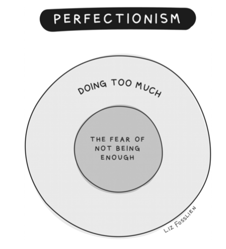 In your quest for flawless results, research suggests perfectionists tend to get three things wrong:
In your quest for flawless results, research suggests perfectionists tend to get three things wrong:
- They obsess about details that don’t matter. They’re so busy finding the right solution to tiny problems that they lack the discipline to find the right problems to solve.
- They avoid unfamiliar situations and difficult tasks that might lead to failure. That leaves them refining a narrow set of existing skills rather than working to develop new ones.
- They berate themselves for making mistakes, which makes it harder to learn from them. They fail to realize that the purpose of reviewing your mistakes isn’t to shame your past self. It’s to educate your future self.
In Hidden Potential: The Science of Achieving Greater Things, Grant shares, “If perfectionism were a medication, the label would alert us to common side effects. Warning: may cause stunted growth.”
Perfectionism traps us in a spiral of tunnel vision and error avoidance: it prevents us from seeing larger problems and limits us to mastering increasingly narrow skills. 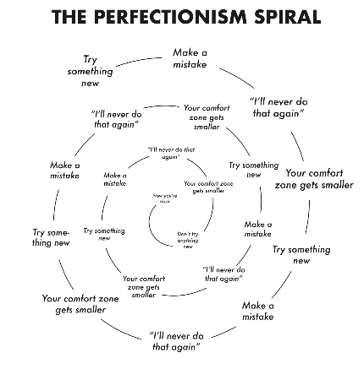
To travel great distances depends on recognizing perfection is a mirage.
Learn to tolerate the right imperfections.
Japanese Tea Ceremony Legend – Wabi Sabi
According to legend, a young man sought out a master to teach him the Japanese tea ceremony. The master tested him by asking him to clean up a garden. The young man removed the weeds and raked the leaves until the grounds were pristine. As he reviewed his flawless work, he decided something was missing. He walked over to a cherry tree and shook it so that some flower petals fell to the ground. By finding beauty in imperfection, he showed he was ready to become a master.
This legend traces back to the sixteenth century when the Japanese tea ceremony underwent a seismic shift. Immaculate dishes were replaced with chipped bowls. People drank from pottery that was worn and weathered.
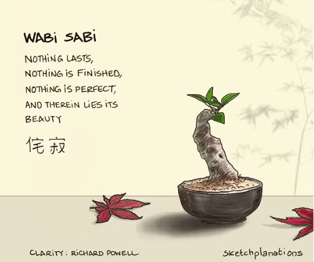 The Japanese call this practice wabi-sabi.
The Japanese call this practice wabi-sabi.
Wabi-sabi is the art of honoring the beauty in imperfection.
It’s not about creating intentional imperfections. It’s about accepting flaws are inevitable—and recognizing they don’t stop something from becoming sublime.
Extensive evidence shows having high personal standards, not pursuing perfection, fuels growth.
People often interpret this as advice to shift from, “be the best” to “do your best.” Aiming for your best is not the best alternative.
Across hundreds of experiments, people who are encouraged to do their best perform worse—and learn less—than those who are randomly assigned to goals that are specific and difficult.
Do your best is the wrong cure for perfectionism.
It leaves the target too ambiguous to channel effort and gauge momentum. You’re not sure what you’re aiming for or whether you’ve made meaningful progress.
The ideal foil for perfectionism is an objective that’s precise and challenging. This focuses your attention on the most important actions and tells you when enough is enough.
Beating Yourself UP
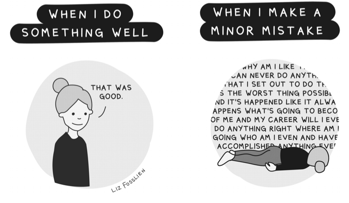 Beating yourself up doesn’t make you stronger—it leaves you bruised.
Beating yourself up doesn’t make you stronger—it leaves you bruised.
Being kind to yourself isn’t ignoring your weaknesses. It’s permitting yourself to learn from your disappointments.
We grow by embracing our shortcomings, not by punishing them.
Perfectionists often worry that failing even once makes them a failure.
Grant shares this from eight studies: “People don’t judge your competence based on one performance. It’s called the overblown implications effect. If you cook one bad dish, people rarely think you’re a terrible chef. If you leave a finger over the camera lens, they don’t conclude you’re a bad photographer. They know it’s only a snapshot from a single moment in time.
It turns out that when people assess your skills, they put more weight on your peaks than on your troughs.”
Aspiring to stay green is a commitment to continued growth, to stay unfinished.
As my former radio sales manager, Mike O’Brien used to remind me, “When you’re green you grow, when you’re ripe you rot!”
Live Up to Your Standards
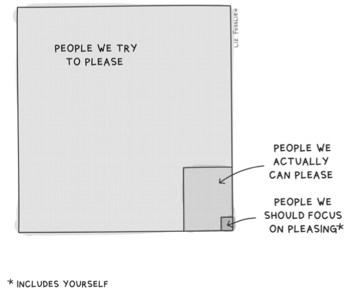 Excellence is more than meeting other people’s expectations. It’s living up to your standards.
Excellence is more than meeting other people’s expectations. It’s living up to your standards.
It’s impossible to please everyone.
It’s better to disappoint others than to disappoint yourself.
You are the final judge. Ask: If this was the only work people saw of yours, would you be proud of it?
If you struggle with perfectionism, watch this 1:43 video Dr. Brené Brown: Perfectionism Holds Us Back From Achieving Our Goals
To create an environment where everyone is inspired to give their best, contact Positioning Systems to schedule a free exploratory meeting.
Turn your team into a repeatable coaching and growth organization.
Growth demands Strategic Discipline.
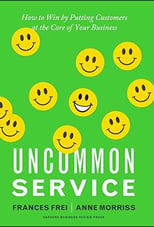 A common confusion in differentiation for companies is their inability to let some things go to achieve more of what customers want, and what YOU do best! Next blog we explore Verne Harnish’s #1 book on Strategy Uncommon Service: How to Win by Putting Customers at the Core of Your Business. We’ll start with rule #1 of their 4 Truths. You can’t be good at everything!
A common confusion in differentiation for companies is their inability to let some things go to achieve more of what customers want, and what YOU do best! Next blog we explore Verne Harnish’s #1 book on Strategy Uncommon Service: How to Win by Putting Customers at the Core of Your Business. We’ll start with rule #1 of their 4 Truths. You can’t be good at everything!
Building an enduring great organization requires disciplined people, disciplined thought, disciplined action, superior results, producing a distinctive impact on the world.
Discipline sustains momentum, over a long period of time, laying the foundations for lasting endurance.
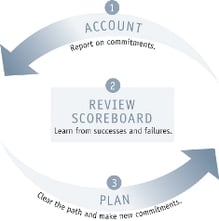 A winning habit starts with 3 Strategic Disciplines: Priority, Metrics, and Meeting Rhythms. Forecasting, accountability, individual, and team performance improve dramatically.
A winning habit starts with 3 Strategic Disciplines: Priority, Metrics, and Meeting Rhythms. Forecasting, accountability, individual, and team performance improve dramatically.
Meeting Rhythms achieve a disciplined focus on performance metrics to drive growth.
Let Positioning Systems help your business achieve these outcomes on the Four most Important Decisions your business faces:
|
DECISION |
RESULT/OUTCOME |
|
PEOPLE |
|
|
STRATEGY |
|
|
EXECUTION |
|
|
CASH |
|
Positioning Systems helps mid-sized ($5M - $500M+) businesses Scale-UP. We align your business to focus on Your One Thing! Contact dwick@positioningsystems.com to Scale Up your business! Take our Four Decisions Needs Assessment to discover how your business measures against other Scaled Up companies. We’ll contact you.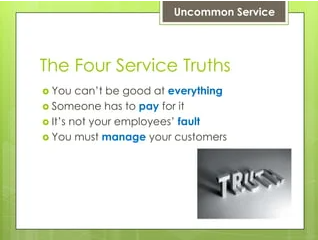
NEXT BLOG – You Can’t Be Good at Everything – Rule #1 to Deliver Uncommon Service






.jpeg?width=150&height=135&name=Hand%20with%20marker%20writing%20the%20question%20Whats%20Next_%20(1).jpeg)

